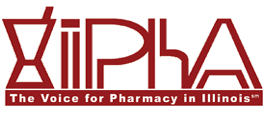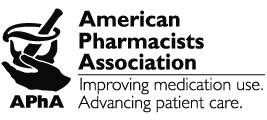How Substance Abuse Can Affect Your Professional License
 After a long and stressful day, sometimes it is nice to come home and have a glass of wine or a beer. It is not uncommon for someone to come home from work and have a drink or two to unwind, but for some people, this can become a harmful habit -- especially if you work in the medical field. Individuals who work in the medical field face an immense amount of stress and tension on a daily basis. Multiple studies have suggested that medical workers face a higher chance of developing a substance abuse issue. According to the Mayo Clinic Proceedings, somewhere between 10 and 12 percent of all physicians will develop a substance abuse issue during their careers. Substance abuse is serious for anyone, but for a physician or other medical professional, it could jeopardize their career.
After a long and stressful day, sometimes it is nice to come home and have a glass of wine or a beer. It is not uncommon for someone to come home from work and have a drink or two to unwind, but for some people, this can become a harmful habit -- especially if you work in the medical field. Individuals who work in the medical field face an immense amount of stress and tension on a daily basis. Multiple studies have suggested that medical workers face a higher chance of developing a substance abuse issue. According to the Mayo Clinic Proceedings, somewhere between 10 and 12 percent of all physicians will develop a substance abuse issue during their careers. Substance abuse is serious for anyone, but for a physician or other medical professional, it could jeopardize their career.
Signs of a Substance Abuse Issue
Sometimes, it can be difficult to spot the signs of substance abuse in a medical professional. Most of the time, medical professionals are very high functioning substance abusers, meaning they are still able to go about their daily lives and maintain their careers and households for a period of time. Here are a few common signs that a medical professional is battling substance abuse:
- Preferring night shifts because of lessened supervision
- Frequent job changes
- Falling asleep on the job
- Taking frequent bathroom breaks or other unexplained absences
- Glossy eyes or small pupils
- Incomplete charting or errors in patient paperwork
- Other job-related errors or missteps
Consequences of Substance Abuse
Having a substance abuse issue when you are a medical professional is risky. Most of the time, issues arise with medical professionals when they have substance abuse issues because their job performance begins to suffer inexplicably. When a medical professional begins to make errors when they are completing patient paperwork or charting, other workers may begin to become suspicious and report their errors to the licensing board. Medical professionals also have the option to self-report their issues, which usually produces a better outcome than if they were reported.
Once the board becomes aware of the substance abuse issue, the board will do what they can to remedy the situation. When medical professionals are under the influence of drugs or alcohol, patients are put at risk. This is why the board will take immediate action to rectify the issue. Typically, if a professional self-reports their substance abuse, the board will allow them to avoid disciplinary action and follow a treatment agreement. This agreement is a comprehensive plan to help the professional battle their addiction and successfully treat it while maintaining their license.
Speak with an Illinois Medical License Defense Attorney to Discuss Your Case
Substance abuse can be a serious issue for anyone who is affected. However, when it comes to medical professionals, your entire career could also be on the line. If you are facing disciplinary action or you know you suffer from a substance abuse issue and you want to be proactive, you should immediately contact a skilled Illinois medical license defense lawyer. At The Law Offices of Joseph J. Bogdan, Inc., we take each case very seriously and will do our best to ensure a positive outcome. Call our office today at 630-310-1267 to schedule a consultation.
Sources:
https://www.addictioncenter.com/addiction/medical-professionals/
https://www.ncbi.nlm.nih.gov/pmc/articles/PMC2704134/
https://www.idfpr.com/FAQ/DPR/CCT%20FAQs%2010%2015%2019.pdf














